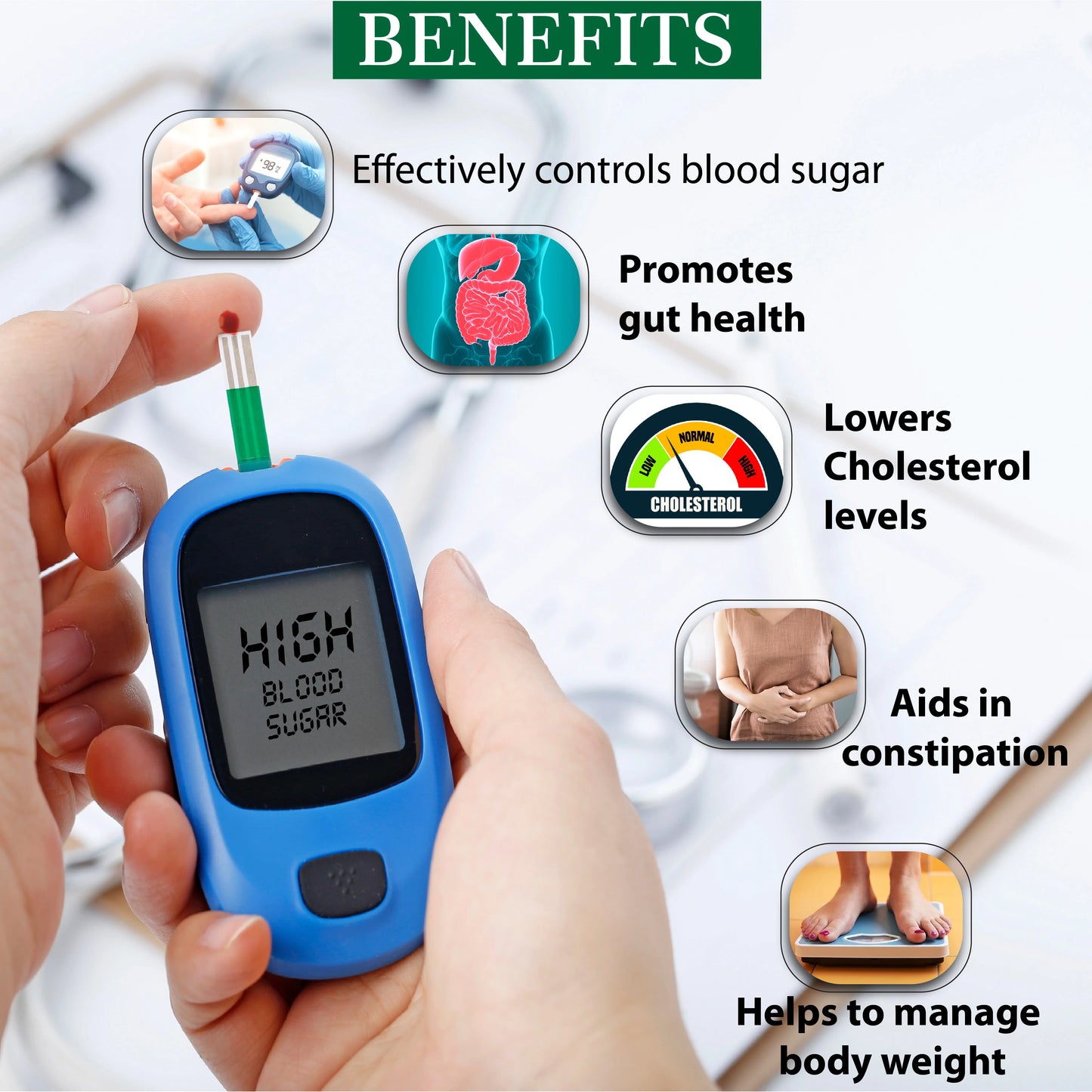What is Diabetes and Why Should You Be Concerned?
Diabetes is a condition where the body either can't produce enough insulin or can't use it effectively, leading to high blood sugar levels. There are two main types:
- Type 1 Diabetes: An autoimmune condition that destroys insulin-producing cells.
- Type 2 Diabetes: The body becomes resistant to insulin, often due to lifestyle factors.
If untreated, diabetes can lead to serious health complications like heart disease, kidney damage, nerve damage, vision problems, and slow wound healing. Early detection and proper management are essential to prevent these risks.
How to Recognize the Early Symptoms of Diabetes
Early signs of diabetes include:
- Frequent urination and increased thirst
- Unexplained weight loss and fatigue
- Blurred vision
- Slow healing of wounds
- Tingling or numbness in hands or feet
If you notice any of these symptoms, consult a doctor for testing and early intervention.
What Are the Risk Factors for Developing Diabetes?
Several factors can increase your likelihood of developing diabetes:
1. Age: Risk increases after age 45.
2. Family history: Having close relatives with diabetes raises your chances.
3. Obesity: Being overweight, especially with excess belly fat, increases the risk.
4. Physical inactivity: A sedentary lifestyle contributes to higher blood sugar levels.
5. Unhealthy diet: A diet high in processed foods, sugary drinks, and unhealthy fats.
6. High blood pressure or cholesterol: Poor cardiovascular health can increase the risk.
7. Gestational diabetes: Women who had diabetes during pregnancy are at higher risk.
Knowing your risk factors can help with prevention and early detection.
How Diabetes is Diagnosed: Key Tests and Procedures
Diabetes is diagnosed using several tests to check blood sugar levels:
1. Fasting Blood Sugar: Blood sugar after fasting. ≥126 mg/dL suggests diabetes.
2. Oral Glucose Tolerance Test (OGTT): Blood sugar after drinking a sugary solution. ≥200 mg/dL suggests diabetes.
3. A1c Test: Measures average blood sugar over 2-3 months. ≥6.5% indicates diabetes.
4. Random Blood Sugar: Blood sugar taken at any time. ≥200 mg/dL with symptoms suggests diabetes.
5. Urine Tests: Checks for sugar or ketones, which may indicate diabetes.
Consult a doctor for accurate diagnosis and treatment options.
When Should You Get Tested for Diabetes?
Get tested if you’re over 45, overweight, or have a sedentary lifestyle. Family history, high blood pressure, and high cholesterol also increase risk. Women with gestational diabetes should test regularly. Consult your doctor if you notice symptoms like excessive thirst or fatigue. Early testing ensures better management of diabetes.
Preventing Diabetes: Tips to Reduce Your Risk
1. Maintain a Healthy Weight – Aim for a balanced weight to reduce strain on your body’s insulin system.
2. Stay Active – Regular exercise helps regulate blood sugar and boosts overall health.
3. Eat a Balanced Diet – Focus on whole grains, vegetables, proteins, and healthy fats. Limit sugar and processed foods.
4. Monitor Blood Sugar Levels – Regular check-ups and monitoring help catch early signs of diabetes.
5. Manage Stress – Stress can impact blood sugar levels; practice relaxation techniques like meditation or yoga.
6. Avoid Smoking and Limit Alcohol – These habits can increase diabetes risk by affecting insulin sensitivity.
Incorporating these habits can significantly lower your risk of developing diabetes and improve overall health.
What to Do if You Have Diabetes: Management and Treatment
1. Follow a Healthy Eating Plan
- Adopt a balanced diet with a focus on fiber-rich foods, proteins, healthy fats, and complex carbohydrates.
- Control portion sizes and monitor your carbohydrate intake to stabilize blood sugar levels.
2. Stay Physically Active
- Aim for at least 150 minutes of moderate exercise per week.
- Regular physical activity helps lower blood sugar and improve insulin sensitivity.
3. Monitor Your Blood Sugar Levels
- Regularly check your blood sugar to ensure it stays within your target range.
- Use a glucose meter or continuous glucose monitor (CGM) as advised by your healthcare provider.
4. Take Medications as Prescribed
- Follow your doctor’s recommendations for oral medications or insulin therapy.
- Ensure timely doses and manage any side effects with your healthcare provider's guidance.
5. Stay Hydrated
- Drink plenty of water to help prevent dehydration, which can be a concern in diabetes.
- Avoid sugary drinks, as they can spike blood sugar levels.
6. Manage Stress
- Practice relaxation techniques such as deep breathing, meditation, or yoga to help regulate stress hormones that can affect blood sugar.
7. Regular Check-ups
- Regularly visit your doctor to monitor diabetes-related health complications, such as eye, kidney, and nerve health.
- Adjust your treatment plan if necessary.
8. Educate Yourself
- Learn about diabetes and how it affects your body. The more informed you are, the better equipped you’ll be to manage the condition effectively.
By taking these steps, you can manage diabetes and reduce the risk of complications, ensuring a healthier and more balanced life.
Shri Chyawan's Ayurvedic Solution
Our ayurveda experts have formulated an ayurvedic medicine for diabetics - Diabetes Care Kit. It helps to control your blood sugar levels. This Ayurvedic medicine is meticulously crafted to assist in maintaining balanced blood sugar levels, promoting overall well-being through natural ingredients.
Shri Chyawan Diabetes Care Kit
The Kit contains four types of ayurvedic medicine that play a major role in the management of blood sugar levels:
- Madhumoksh Vati
- Chandraprabha Vati
- Karela & Jamun Ras
- Giloy Juice
1. Madhumoksh Vati - Shri Chyawan Ayurveda's Madhumoksh Vati Supports healthy blood sugar levels in the body and removes the problems caused by it.
Ingredients: The main ingredients used in Madhumoksh Vati are vasant kusumakarra, madhumeh harirasa, neem panchang, jamun beej, gudmar, karela beej, talmakhna, jalneem, amla, and baheda.
How To Use: If blood sugar level of patient is 200mg/dl, then he/she is required to take 2 tablet, twice a day, before meal or as directed by the physician.
2. Chandrabha vati - Shri Chyawan Ayurveda's Chandraprabha vati Supports healthy uric acid levels and may contribute to overall wellness.
Ingredients: It consists of Amla, Sandalwood, Daruharidra, Devdaru, Camphor, Cinnamon, and Pipal.
How To Use: Consume 1 tablet at night before going to bed. or as Directed by the Physician.
3. Karela Jamun Ras - Shri Chyawan Karela Jamun Ras supports metabolic health and may contribute to balanced blood sugar levels in the body and Jamun contains jamboline and jambosine, which are believed to support metabolic health.
Ingredients: The main ingredients of this juice/ras are Karela and Jamun juice.
How To Use: Consume 10ml, twice a day, after 1 hour post lunch and dinner or as Directed by the Physician.
4. Giloy Ras: Giloy Ras is an herbal and ayurvedic supplement known for its potential health benefits, including supporting overall well-being and Supports healthy blood sugar levels in the body.
Ingredients: It consists of juice extracted from Giloy.
How To Use: For children 5ml-10ml,
For adults 10ml-20ml, thrice a day. or as Directed by the Physician.
Conclusion
Diabetes is a serious condition, but with early detection, proper management, and lifestyle changes, it can be effectively controlled. Recognizing the symptoms early, understanding your risk factors, and getting the right tests are key to managing diabetes successfully. By making healthy choices—such as eating well, staying active, and following your doctor's advice—you can lead a full and healthy life, even with diabetes. Remember, ongoing monitoring and regular check-ups are crucial to prevent complications and keep your blood sugar levels in check. With the right approach, diabetes doesn’t have to define you—empower yourself with knowledge and proactive care.
Free Consultation with our Expert Doctor- 📞📞 95162 64444
















